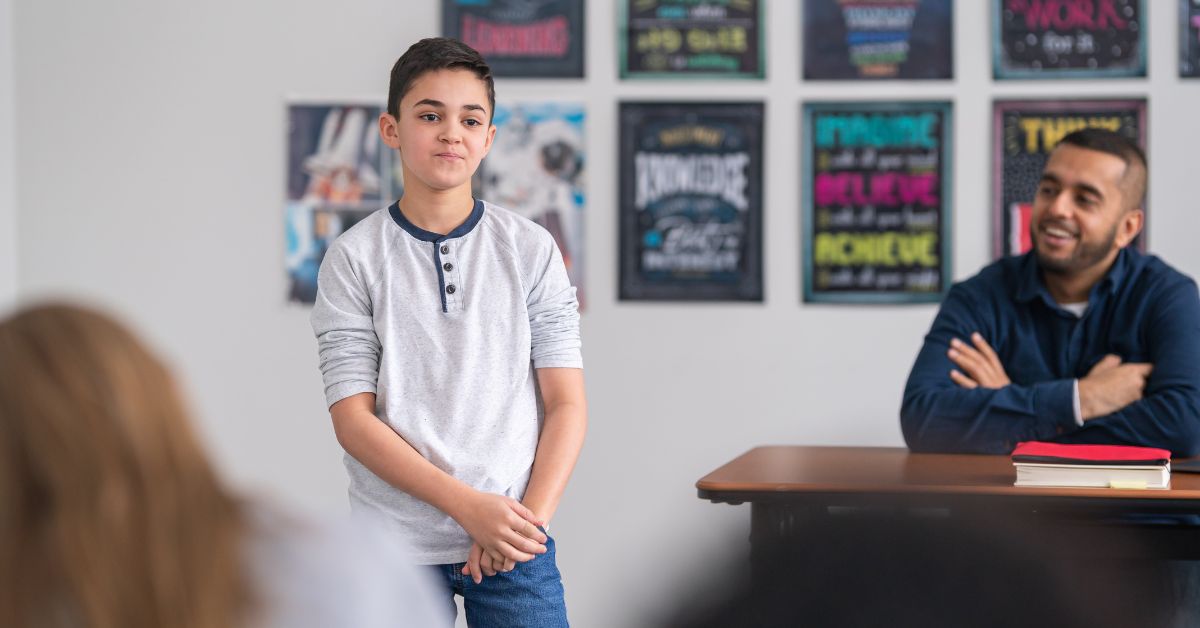
May 26, 2023 5:08:33 PM
by Lynne Munson
Mya Gooden, a sixth grader at Salk Elementary School in Clinton Township, wrote me a letter several years ago as part of a class assignment. As the founder of a curriculum company, I talk with many students. She suggested ways to improve the math curricula my colleagues and I wrote.
Mya said the curriculum was too challenging and used overly complex language. She suggested ways to simplify the language and trim the length and number of sentences in word problems. “It’s hard to learn a new math concept if you’re struggling with the vocabulary,” she wrote in her letter, part of a persuasive writing assignment.
It was a lightbulb moment for me.
Mya is now completing her junior year of high school, and we recently had the chance to meet. I thanked her and told her I took her advice and created a new math program that's more accessible and readable through better word choices and improved spacing, fonts, and language choices. We’re getting positive feedback and are so grateful to Mya for speaking up.
We need to do more as a country to support students like Mya and incorporate the student voice in the classroom to improve educational outcomes.
Research confirms elevating the voice of young people has a positive effect on outcomes like grades and attendance. Given the impact of the pandemic on students, as seen in the Nation’s Report Card and other academic and non-academic measures, we need look at strategies that spur growth and progress.
The persuasive writing exercise Mya participated in was a great example of how schools can tap the power of student voice by giving kids the chance to engage in issues of genuine concern to them. Another strong classroom practice is the Socratic Seminar, a student-led discussion in which kids ask each other open-ended questions and listen to one another. And to further inspire students to speak up, teachers can assign books that spotlight young people using their voice for good. A book like “Claudette Colvin: Twice Toward Justice,” by Phillip Hoose, which tells the true story of a Black teen who refused to give up her seat on a bus in the segregated South in 1955 is a great example for middle schoolers. Another is “I am Malala,” by Malala Yousafzai, who stood up to the Taliban in support of girls’ education.
Math and science classrooms are also important places for student voice. One of my curriculum writing colleagues, Lisa Watts Lawton, a second-grade teacher in the Los Angeles Unified School District, says quiet math classrooms should be a thing of the past. On a visit to her classroom on any given day, you’ll hear students explaining how they got solutions to problems, asking each other questions, and defending their thinking. In science, I love seeing students engage in problem-solving on topics they care about and discussing and carrying out experiments. Across content areas and classrooms, educators can also support student voices by asking kids to deliver public presentations to outside audiences, including students in parent-teacher conferences, and bringing attention and resources to student government associations.
There are also process and policy changes school systems can make. Robust student surveys can inform and improve academic offerings, assess teaching and learning, and gain insights into student well-being. Adding student members to school and state boards of education or student advisory councils is another approach some communities have adopted.
In addition to being an educator and CEO, I’m a mom to two teenagers. Like Mya, they have a good sense of what they need to be successful in school.
I’m trying hard to listen to what they say and let that guide decisions we make as a family about their education. That usually leads to better choices and outcomes.
Perhaps not in every instance—but more often than not—education leaders can take this stance with all students. There is ample evidence that in doing so, we can create the kind of schools that support students in meeting their goals and achieving their dreams.
Lynne Munson is the founder and CEO of Great Minds, the nonprofit developer of Eureka Math (originally EngageNY), Wit & Wisdom and PhD Science.
Few issues in education spark more tension and debate than standardized testing. Are they a tool for equity or a burden on students? A necessary check on school systems or a flawed measure of...
Charter schools are public schools with a purpose. Operating independently from traditional school districts, they're tuition-free, open to all students, and publicly funded—but with more flexibility...
Despite the benefits of a diverse teaching force, prospective teachers of color fall out of our leaky preparation pipeline at every stage: preparation, hiring, induction, and retention. Here’s what...
Ed Post is the flagship website platform of brightbeam, a 501(c3) network of education activists and influencers demanding a better education and a brighter future for every child.
© 2020-2025 brightbeam. All rights reserved.
Leave a Comment